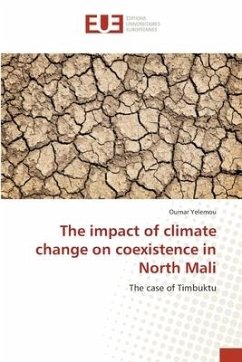At the moment the North of Mali is one of the most dangerous places in the world. In the midst of an unrelenting social violence and insecurity, the central government has become the target of gun men and women- the Tuareg rebels claiming, not only their independence and sovereignty, but also better economic and livelihood conditions. As initiatives are being multiplied to find a common ground among the belligerents, including negotiation of peace agreements, mediation, or conflict resolution, investigating on the core issues should be of interest to people working in academia, especially those majoring in coexistence and conflict, research institutes, governmental agencies, non-governmental organizations. In the particular context of Northern Mali, I argue that attacking the Malian government or other institutions will not probably allow the rebels to have their claims satisfied. This current approach to addressing the problem will not work out successfully; it will rather fuel tensions among communities across the region. In this case, I hypothesize that climate change is destabilizing the economy and the livelihoods of the Tuaregs, making hard their conditions of life.
Bitte wählen Sie Ihr Anliegen aus.
Rechnungen
Retourenschein anfordern
Bestellstatus
Storno








